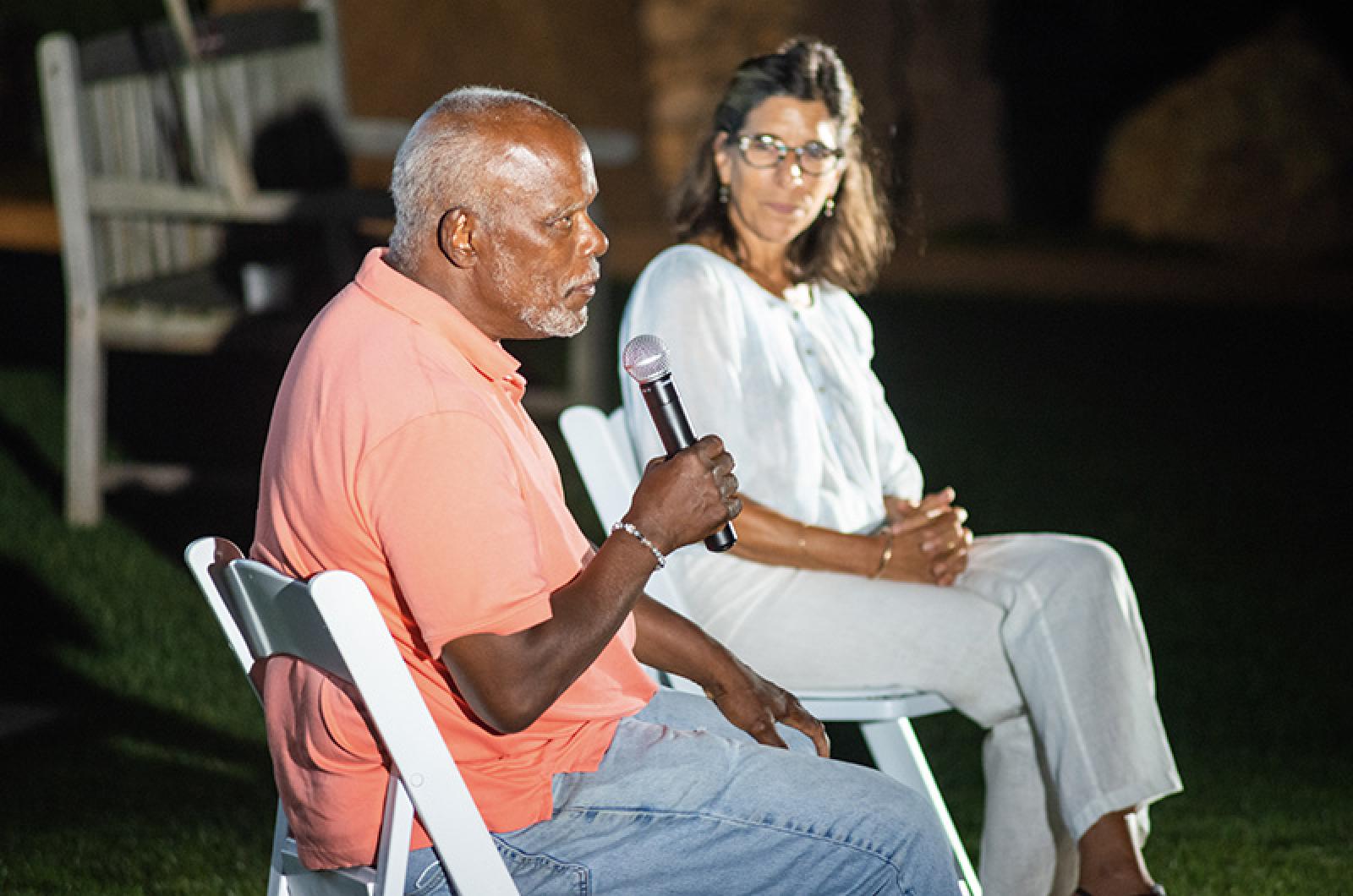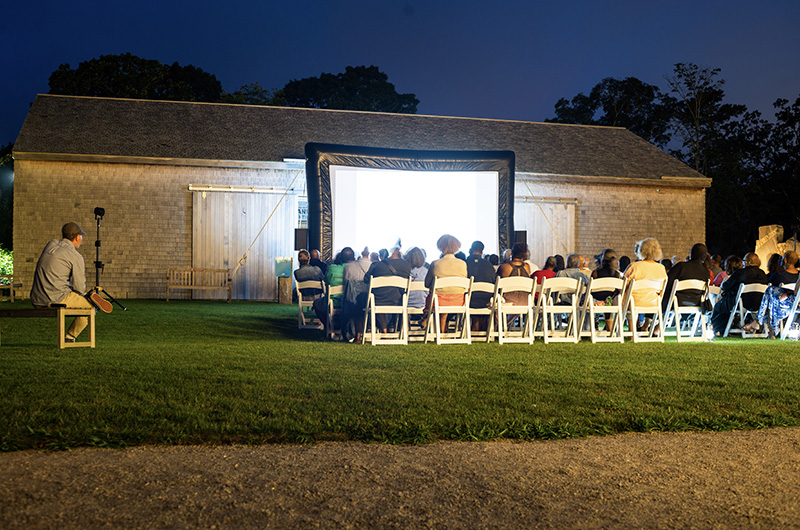Filmmaker Stanley Nelson’s highly personal documentary A Place of Our Own had a rare big-screen showing Tuesday night at the Martha’s Vineyard Museum in Vineyard Haven.
Originally released in 2004 by PBS, the film is a celebration of Oak Bluffs as a summer retreat for generations of African American families like Mr. Nelson’s who came here to be themselves, without the burden of meeting white expectations.
“It’s black folks’ paradise. That’s what it is,” Mr. Nelson told the audience after the show, during an interview with museum board chair Cathy Weiss.
“White folks, too,” he added, as the audience laughed. “You’d have to be stupid not to love it here.”
Love and joy are the through-lines of Mr. Nelson’s film, which more than a decade and a half after its release still brims with the pleasure of Island summers gone by. Mr. Nelson’s acclaimed film career includes three Emmys, a National Humanities Medal and a MacArthur Fellowship.
“We didn’t come to Martha’s Vineyard. We came to Oak Bluffs,” recalls Mr. Nelson’s father, a dentist who in the 1950s became one of the first black property owners on Sea View avenue when he bought the prominent home that still remains in the family.
Old home movies pull viewers into the cocktail parties, beach dances and ferry arrivals of the mid-20th century, when the Friday afternoon steamship was known as the Daddy Boat because it brought black families’ working-professional fathers back for the weekend.
Mr. Nelson also follows the Polar Bears on their lively morning dip at the Inkwell, and visits with elders including Belle Powell, the irrepressible first wife of Adam Clayton Powell, Jr., and scholars such as Henry Louis Gates Jr.
“Black people doing well is the default [here]. That’s the baseline,” Mr. Gates tells the camera.
Summering in Oak Bluffs has led to lifelong friendships, including marriages such as Mr. Nelson’s own to his filmmaking partner Marcia Smith, another Oak Bluffs summer kid.
“It cut down on the background checks,” Ms. Smith tells him wryly, before continuing: “It’s important to know how a man grew up, and that my family knew your family really made me feel confident.”
One of the less-appealing aspects of the summer community was color-ism, or what Mr. Nelson’s light-skinned friend Neil Margetson calls “the color thing.” Even in Oak Bluffs, paler blacks were considered more attractive. Tears track the face of a darker-skinned woman recalling how she and her sisters were wallflowers at dances; one of the sisters recounts being called “midnighters” by a lighter-skinned boy at the beach.
“The prejudices of the outside world have a way of creeping in,” Mr. Nelson says, underscoring his larger theme of racism in American society as a whole and its effect on his family in particular. While summer socializing allowed middle-class and elite black families to drop the heavy load of representing their race, the topic was never far away.
“There was always a lot of talk about white people and how crazy they are, and about black people and how crazy white people make them,” he recalls in his narration.
His father, who divorced his mother soon after buying the Sea View avenue house, was tormented by inequality throughout his life, Mr. Nelson says. Purchasing the home across from the beach, Dr. Nelson tells his son in the film, was a statement of determination: “We too like it nice.”
Mr. Nelson and Ms. Smith have raised their children in Oak Bluffs the way they grew up themselves: fishing, swimming, making friends.
“It’s still the same wonderful place,” he told the museum audience after the show. “It’s still a place where you can hopefully find peace and family and a different world.”
Or, as Ms. Smith puts it in the film: “This is the place where I am most myself.”
The Martha’s Vineyard Film Festival provided its inflatable outdoor screen for Tuesday’s event, while the museum rolled out its popcorn cart and offered a selection of movie candy.
“This is the first time we’ve done a movie screening on our campus,” museum director Heather Seger told the audience. “It certainly won’t be the last.”








Comments (2)
Comments
Comment policy »